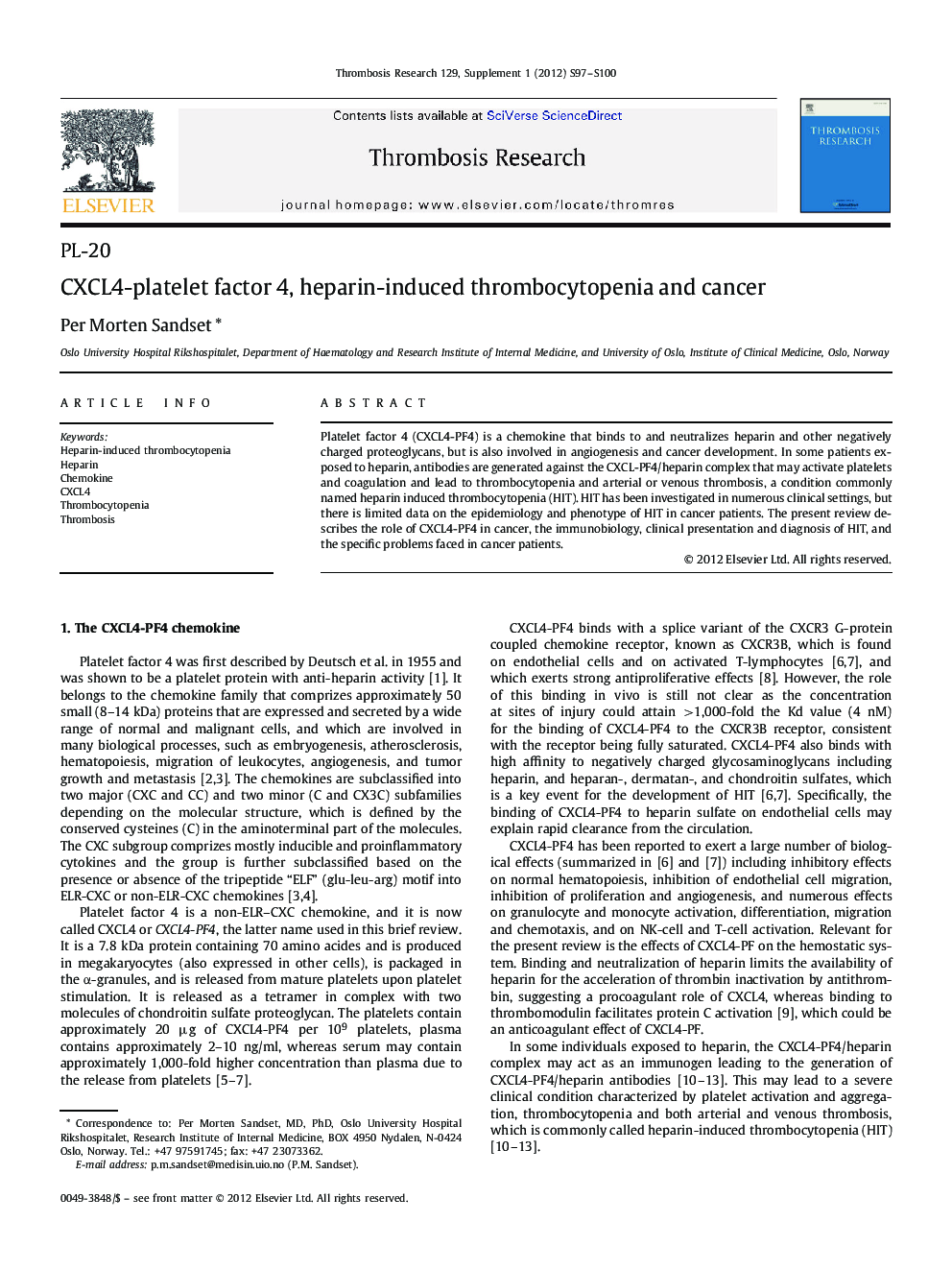| Article ID | Journal | Published Year | Pages | File Type |
|---|---|---|---|---|
| 3028539 | Thrombosis Research | 2012 | 4 Pages |
Platelet factor 4 (CXCL4-PF4) is a chemokine that binds to and neutralizes heparin and other negatively charged proteoglycans, but is also involved in angiogenesis and cancer development. In some patients exposed to heparin, antibodies are generated against the CXCL-PF4/heparin complex that may activate platelets and coagulation and lead to thrombocytopenia and arterial or venous thrombosis, a condition commonly named heparin induced thrombocytopenia (HIT). HIT has been investigated in numerous clinical settings, but there is limited data on the epidemiology and phenotype of HIT in cancer patients. The present review describes the role of CXCL4-PF4 in cancer, the immunobiology, clinical presentation and diagnosis of HIT, and the specific problems faced in cancer patients.
